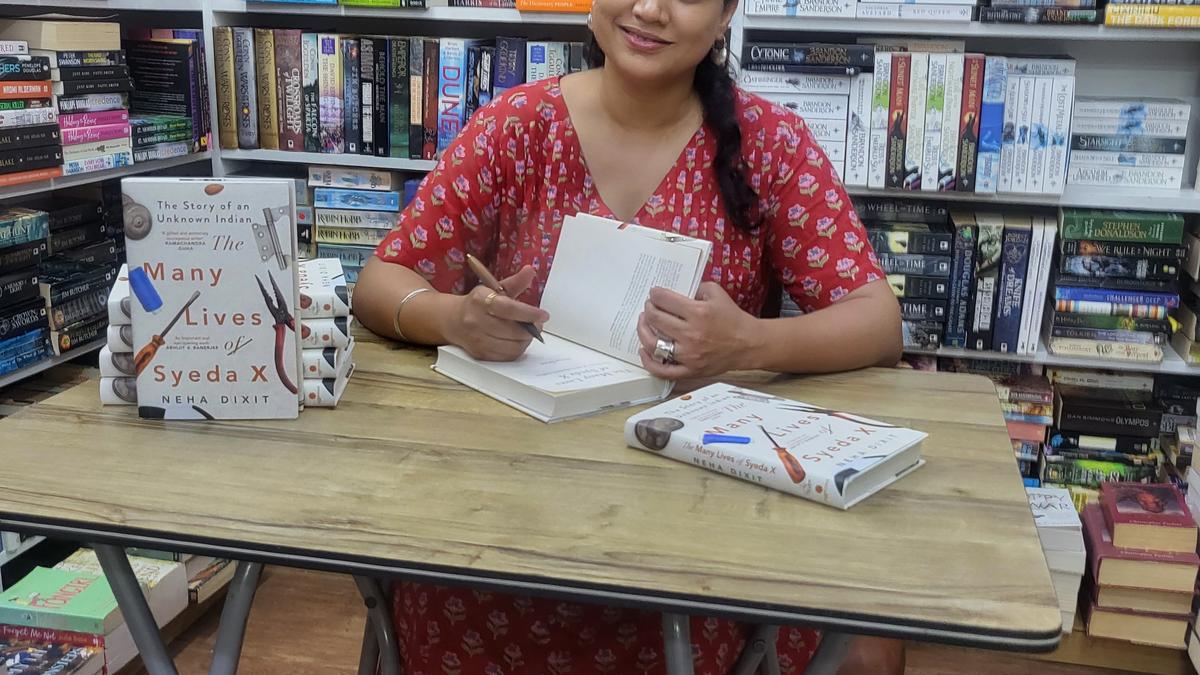
The New India Foundation invites applications for the 12th edition of its NIF Book Fellowships
The Hindu
“Writing, in general, is a very solitary process,” says Yauvanika Chopra, Associate Director at The New India Foundation (NIF), which, earlier this year, announced the 12th edition of its NIF Book Fellowships for research and scholarship about Indian history after Independence. While authors, in general, are built for it, it can still get very lonely, says Chopra, pointing out that the fellowship’s community support is as valuable as the monetary benefits it offers. “There is a solid community of NIF fellows, trustees, language experts, jury members, all of whom are incredibly competent,” she says. “They really help make authors feel supported from manuscript to publication, so you never feel like you’re struggling through isolation.”
“Writing, in general, is a very solitary process,” says Yauvanika Chopra, Associate Director at The New India Foundation (NIF), which, earlier this year, announced the 12th edition of its NIF Book Fellowships for research and scholarship about Indian history after Independence. While authors, in general, are built for it, it can still get very lonely, says Chopra, pointing out that the fellowship’s community support is as valuable as the monetary benefits it offers. “There is a solid community of NIF fellows, trustees, language experts, jury members, all of whom are incredibly competent,” she says. “They really help make authors feel supported from manuscript to publication, so you never feel like you’re struggling through isolation.”
Fellowships alternate every year between the NIF Book Fellowships and the NIF Translation Fellowships (for bringing non-fiction from Indian languages to English), with this year focused on the former. According to a release, since its inception two decades ago, the New India Foundation has sponsored the publication of 34 critically acclaimed, award-winning books across a wide range of topics detailing the trajectory of India after 1947.
Chopra lists some of them: Rahul Pandita’s Our Moon Has Blood Clots: The Exodus of the Kashmiri Pandits, Neyaz Farooquee’s Growing Up Muslim in India: An Ordinary Man’s Guide To Radicalism, Ayesha Kidwai’s translation of her grandmother Begum Anis Kidwai’s memoir titled In Freedom’s Shade, Jason Fernandes’ Citizenship in a Caste Polity: Religion, Language and Belonging in Goa and Kartik Shanker’s From Soup to Superstar: The Story of Sea Turtle Conservation Along the Indian Coast, among others. “On the website, we write that we are ecumenical in terms of genre and ideology; the only requirement is that the proposed works contribute to a fuller understanding of contemporary India,” she says. “That is really true. It is a pretty wide canvas.”
The application form, currently accessible on the NIF website, is fairly straightforward, adds Chopra. In addition to details such as name, date of birth, address and contact number, applicants must provide a 5000-word research proposal and a similarly-sized writing sample. “Those are indicative,” she says. “Your proposal could be shorter, and your writing example could be from something else that you’ve written, although it’s recommended that it should be from the book you want to write because then we get a sense of what it would look like,” she says.
While the number of fellowships is variable, at least five are awarded from the 20-odd people shortlisted every year. Fellowship holders are granted a cumulative amount of ₹18 lakhs over a 12-month-long period, which includes a stipend of ₹1 lakh per month. The rest will be disbursed at the time of the final manuscript submission, states Chopra. “The other thing we offer is a one lakh subsidy directly to the publisher to offset printing costs,” she says. “If they can keep the price down for the book, they can make sure that it reaches more people.”
Applications for the NIF fellowship are open till December 31. To know more, log into www.newindiafoundation.org/nif-fellowships.

“Writing, in general, is a very solitary process,” says Yauvanika Chopra, Associate Director at The New India Foundation (NIF), which, earlier this year, announced the 12th edition of its NIF Book Fellowships for research and scholarship about Indian history after Independence. While authors, in general, are built for it, it can still get very lonely, says Chopra, pointing out that the fellowship’s community support is as valuable as the monetary benefits it offers. “There is a solid community of NIF fellows, trustees, language experts, jury members, all of whom are incredibly competent,” she says. “They really help make authors feel supported from manuscript to publication, so you never feel like you’re struggling through isolation.”

Several principals of government and private schools in Delhi on Tuesday said the Directorate of Education (DoE) circular from a day earlier, directing schools to conduct classes in ‘hybrid’ mode, had caused confusion regarding day-to-day operations as they did not know how many students would return to school from Wednesday and how would teachers instruct in two modes — online and in person — at once. The DoE circular on Monday had also stated that the option to “exercise online mode of education, wherever available, shall vest with the students and their guardians”. Several schoolteachers also expressed confusion regarding the DoE order. A government schoolteacher said he was unsure of how to cope with the resumption of physical classes, given that the order directing government offices to ensure that 50% of the employees work from home is still in place. On Monday, the Commission for Air Quality Management in the National Capital Region and Adjoining Areas (CAQM) had, on the orders of the Supreme Court, directed schools in Delhi-NCR to shift classes to the hybrid mode, following which the DoE had issued the circular. The court had urged the Centre’s pollution watchdog to consider restarting physical classes due to many students missing out on the mid-day meals and lacking the necessary means to attend classes online. The CAQM had, on November 20, asked schools in Delhi-NCR to shift to the online mode of teaching.









